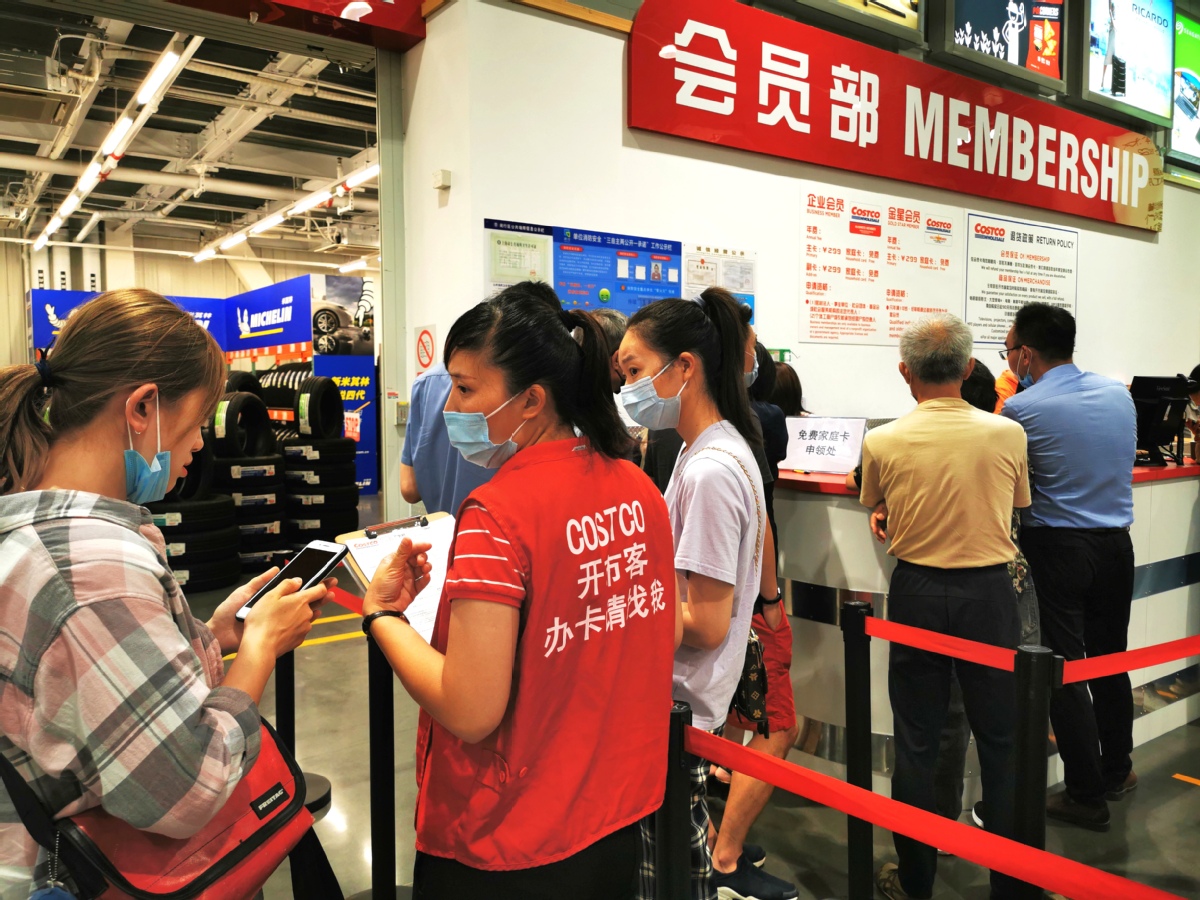Membership-based markets gaining popularity


Andrew Miles, president of Sam's Club China, said the company will develop more differentiated products, unique shopping experiences and better membership benefits based on lifestyles of member customers.
Sam's one-hour delivery services set up cloud distribution centers near communities where members live. Services often include perishable goods, maternity and infant products, as well as personal care items with high penetration rates. Such services are available at all Sam's Clubs in China. This business sector has grown tenfold since it was launched in 2017, the retailer said.
Sam's Club has announced it will maintain its expansion momentum in China at the speed of four to five new stores each year. By the end of 2022, the retailer is expected to have a total of 40 to 45 stores in operation or in the pipeline in the country. The number is currently at 32.
The premium retailing sector of Walmart has opened two new outlets recently and is expected to open one new store each in Wuhan, Hubei province, Hangzhou, Zhejiang province and Shanghai.
According to Walmart's first-quarter financial results released on May 18, Sam's Club saw global sales increase 7.2 percent year-on-year, and e-commerce sales grew 47 percent. Membership income increased 12.7 percent, and total members reached an all-time high, said the report.
Private brands and digitalization have also helped transform the country's leading wholesale retailer-Metro China. More than 24 percent of merchandise available at Metro China comprised self-owned labels and imported products in 2020.
The retailer has also developed exclusive products at reasonable prices. Its merchandising department head said earlier that choices for design and development of its privately branded products are mostly categories that have fewer established brands such as household items and gloves, with prices 20 percent lower than market prices.
Claude Sarrailh, former president of Metro China, who had been stationed in China for the past three years and left last month for Germany, headquarters of Metro, summarized mega trends in China's retail sector: demands for more quality, diversified goods, consumer-centric retailing approaches, emphasis on the health of consumers and the environment.
Beijing-based Wumart Group acquired Metro China in 2020. Metro China has had a major digital makeover since merging with the digital-savvy Chinese retailer.
"The biggest challenge and opportunity we had over the last year was to get close to a company which is so good at digitalization,"Sarrailh said of Dmall, its technology collaborator. "Digitalization is not something which is a purpose in itself. It's a 'How', not a 'What'. You use digitalization for different targets."
The company has benefited from its collaboration with Dmall in terms of the transformation of its IT system and capacity to deliver to customers.
Metro and Dmall have developed an official mobile application planning to offer suggestions on what to buy and where to buy. The two have also been developing a suite of software in order to improve its capacity to better serve restaurants and cafeterias.
The results have been visible. For example, Metro's share of e-commerce was very low, but soared over the past year, said Sarrailh, who is now in charge of international sourcing for Metro Global, and intends to bring best practices and experiences regarding digital transition in the Chinese retail market back to Europe.
He recalled his time in Italy:"They changed the IT system to manage the checkout and it took three years to do it. We changed our full system of cashiers in China in 3.5 months. Nobody in Germany believed at that time we would be able to do it. This is the unbelievable power we have now as part of Wumart Group," he said.
The retailer has also been keen to transform its business with more focus on the expansion of its memberships, offering more differentiated and quality products with exclusive services.
Metro China launched one membership program last May in Shanghai and has rolled it out since November in 97 stores.
Now membership program represents a major part of all sales in its business-to-consumer sector, and it is growing very fast, Sarrailh said. At present, a major portion of Metro's business-to-consumer sector revenue has been generated from its membership model, which has grown rapidly this year.




































